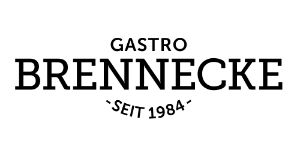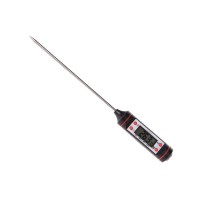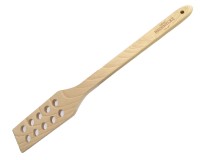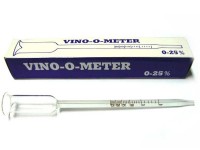What do I really need?
If you want to make your own wine, you need a little basic equipment Basic equipmentyou can't do without. You can opt for a starter set, in which the contents are already predefined. For beginners the Starter set with the 20 liter fermentation balloon is ideal. And the large professional set already contains everything you need regularly as a good hobby winemaker. Important: Make sure that you can expand the set as desired. Or you can buy the accessories individually - just the way it suits you
The equipment: From wine filter to vinometer to wine bottle
- Fermentation vesselwine balloons are available in glass and plastic. Your wine matures in them. With a matching fermenter top and closure, the fermenter is the most important and largest accessory for winemaking You can get fermentation vessels in different sizes and price ranges. Before buying, you should definitely think about how many liters of wine you want to make
- Wine lifter wine filter or suction hose These accessories areused to separate the clarified wine from the sediment (lees) and decant it. For a particularly simple and safe filtration can be used Wine lifter and Wine filter can also be combined with each other Hint: For starters, you can also try patience and gravity first. The lees will sink to the bottom over time, so with skill and a steady hand, you can separate the wine without a filter However, the process will take much longer.
- Wine bottle and wine corkat the end, your wine is bottled - preferably in real wine bottles real wine bottles. You eitherbuy new bottles - or you simply reuse old wine bottles. This is the cheapest and most sustainable way. Before you bottle your wine, however, you should clean the bottles very thoroughly. And don't forget the right Wine corksto seal the bottles after bottling. This way, your wine will last longer and, above all tasty.
- Vinometer: With the Vinometeryou can measure the alcohol content of your homemade wine As a future hobby winemaker, you can't do without this must-have.
You can't do without additives: from wine yeast to tartaric acid
- Wine yeast Pure cultured yeast supports the fermentation process. It is available as dry yeast and liquid yeast. Note: baker's yeastefe is not suitable for making your own wine.
- Yeast nutrient saltas the name implies, this is used to nourish the yeast to give the fermentation process additional momentum.
- Sugarby adding sugar you influence the alcohol content. Dhe fruit acid is usually not enough.
- Tartaric acid: With natural Acidifiers such as lactic acid and citric acid to increase the acidity of your wine, if necessary.
- Potassium pyrosulfiteprolongs the shelf life of the wine.
- Potassium sorbateprevents the wine from continuing to ferment even after bottling.
- Antigenic agentensures that the fruit's own pectin in the mash is liquefied or broken down so that it does not gel.
The ultimate wine guide for making your own wine: the Kitzingen Wine Book
As a hobby winemaker, there's no way around the "wine bible" - the Kitzingen Wine Book. In about 230 pages you can read everything you need to know about making your own wine. Starting with an overview of the equipment and the correct processing of the fruit to special types of acid and sugar. In addition, you will find many special and simple wine recipes in the Kitzinger Wine Book.
Tipthe Kitzinger Wine Book is the ideal gift for wine lovers and budding hobby winemakers!
Wine from other fruits than grapes
Of course you can make wine not only from grapes. Once you have the necessary accessories for making wine, its use is not limited to grapes. Fruit wines can be made from a wide variety of fruits. The most popular fruit wine is probably apple wine. But cherry wine, strawberry wine or plum wine also taste good. Taste and imagination know no bounds. Making fruit wine yourself always works according to the same principle. Once you've got the hang of it, you can keep experimenting, using different types of fruit and creating your own personal fruit wine. Maybe try blackberries, bananas, rhubarb or oranges
Fruit from your own garden or the supermarket
If you have your own garden, you can easily process the fruit you have harvested yourself. But of course, fruit wine can also be made from local and exotic fruits that you can buy in the supermarket around the corner. You don't have to limit yourself to one fruit, but can mix different varieties according to your taste.
Apple cider
Cider is one of the most popular fruit wines with a long tradition. Already the ancient Greeks, Romans and also the Germanic tribes knew how to make it. Depending on the type of apple used, cider tastes sweet and sour and can be enjoyed at any time of the year. Sparkling and refreshing in summer or as a warming hot drink in winter. With an alcohol content of between 5 and 7%, it is easily digestible.
Freshly pressed apple juice
If you want to make your own apple cider, you must first juice the apples of your choice. The best way to do this is to use a wine press. With its use, you get the most juice from the delicious fruit. Alternatively, you can also use a juicer or a blender. If you choose the latter option, puree the apples very finely. Then separate the juice from the solids using a clean cotton cloth or a fine sieve
The right apple variety
Apple varieties are plentiful. Which variety you use to make your cider is up to you and your preferences. We would like to give you a small selection of different apples. This might make it easier for you to choose the perfect ingredients for your own cider.
- Boskop tastes rather sour
- Santana is a new apple variety that is usually well tolerated by allergy sufferers and also tastes slightly sour
- Elstar is a rather sweet variety and is one of the classics
- However, the most popular apple variety is now Jonagold. Jonagold apples have a sweet taste with slight acidity and store well for a long time
- Granny Smith is also a well-known variety. The green apples have a high acidity. But they do not count as domestic apples, as they cannot be grown in Germany. If you value sustainability, you should therefore always pay attention to the origin.
- Gala Royal is particularly juicy and sweet in taste.












